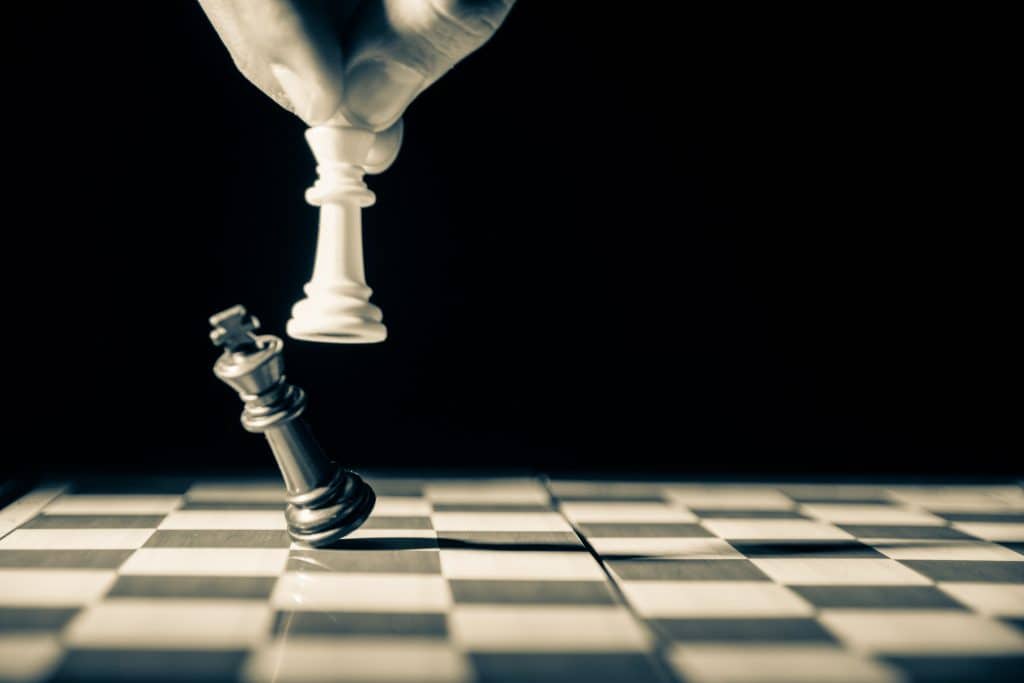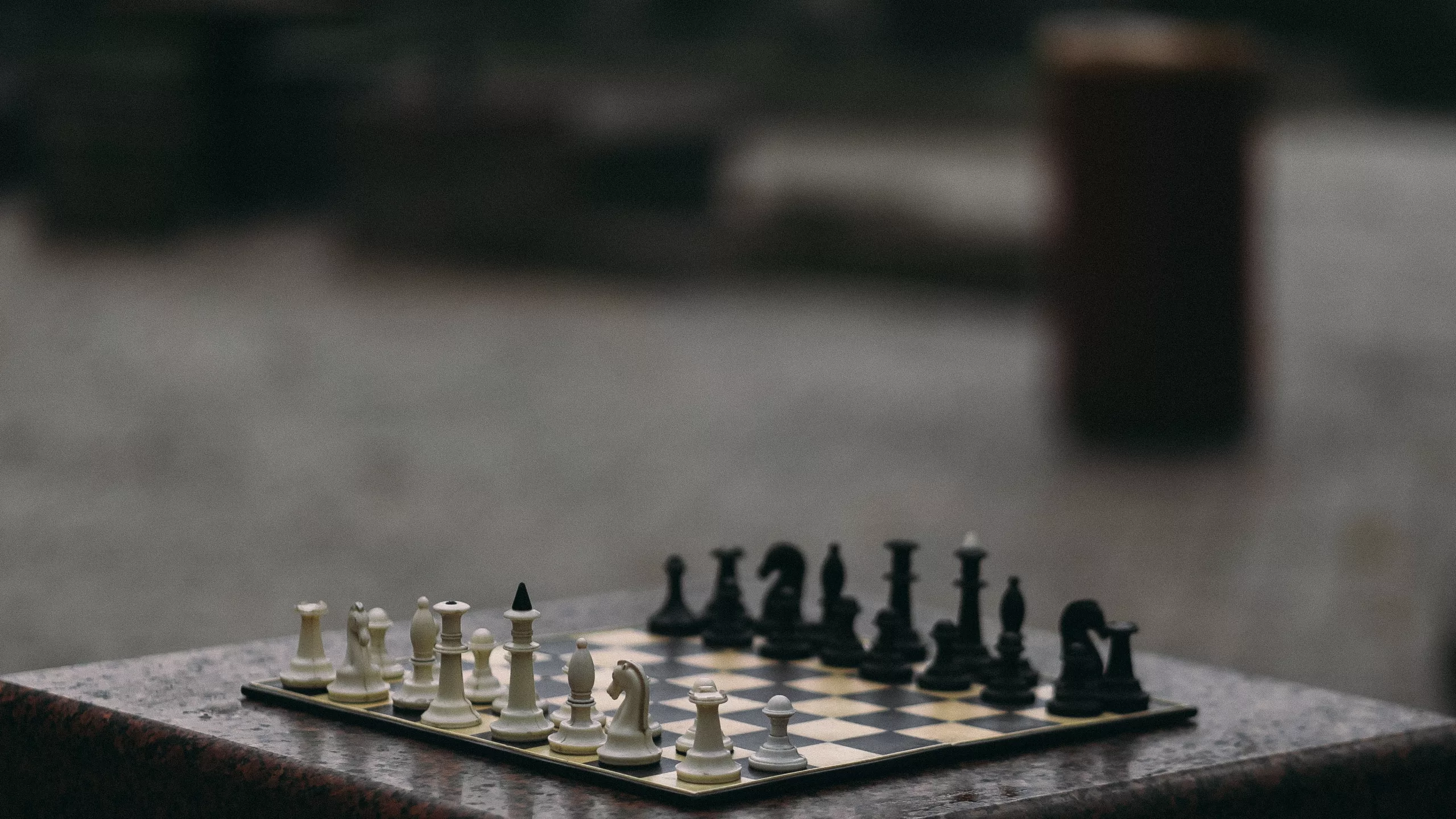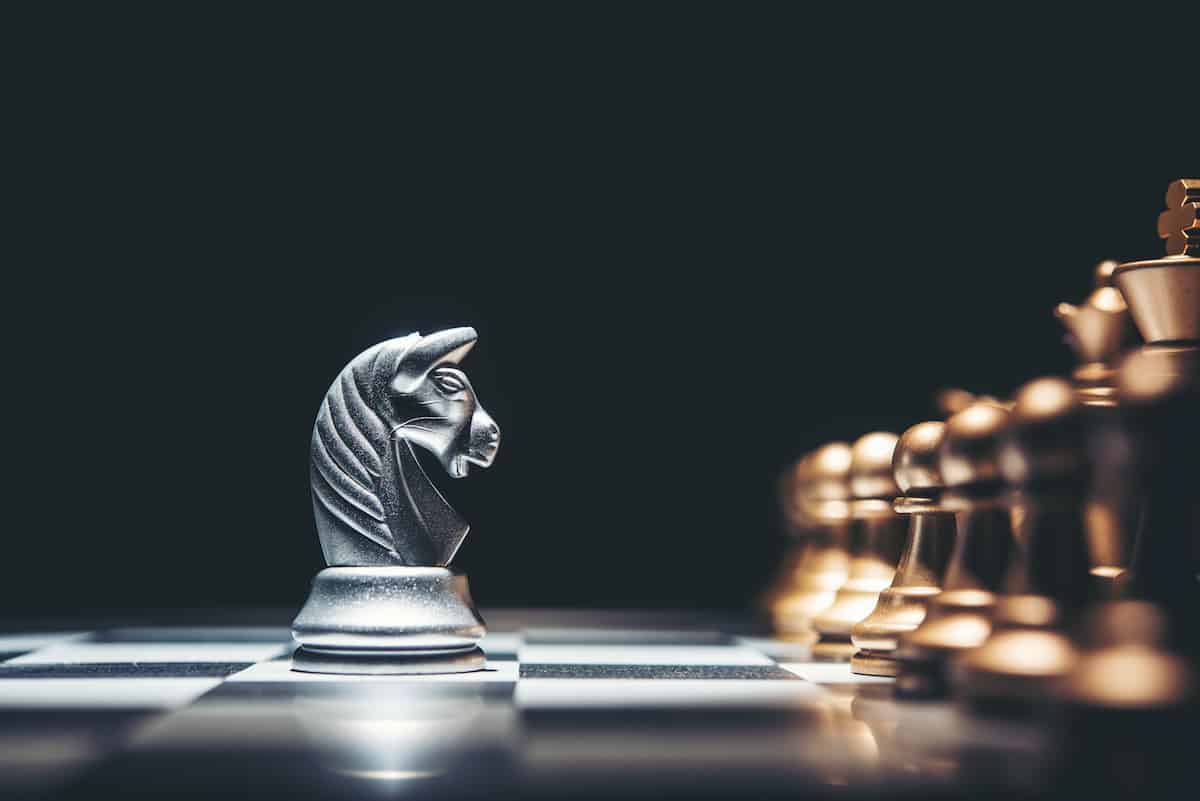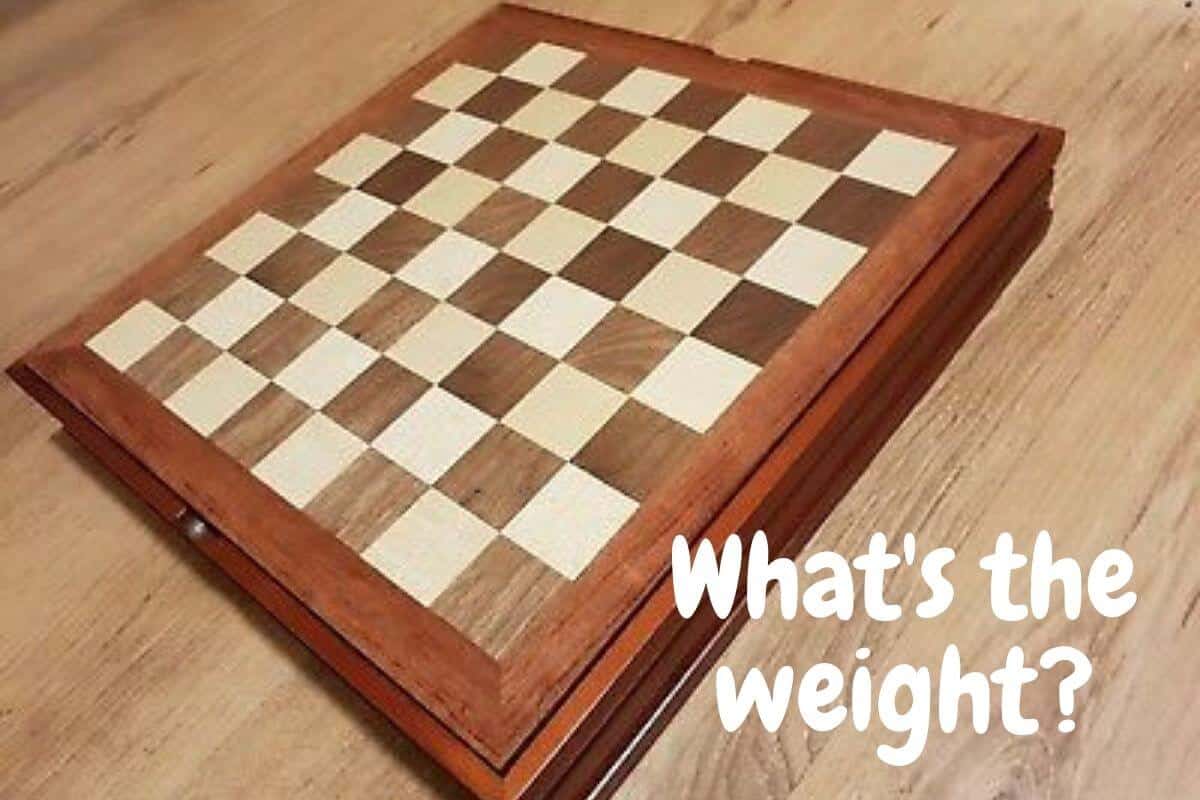Garry Kasparov vs Deep Blue: Although chess engines running on high end home computer hardware had been able to defeat all but the world’s top echelon of chess players for a couple of years by the start of 1996 (and, even on average hardware, had been able to defeat club players for even longer), many human players held it as an article of faith that a computer program would never be able to defeat a world champion.
Early in 1996, Garry Kasparov once again met his silicon nemesis, now rechristened Deep Blue (since “Big Blue” [IBM] was now sponsoring the project) in a six game match played in Philadelphia. The event garnered a huge amount of interest, even among the non-chessplaying public.
At the time the match was played, I was employed as a computer analyst for a large corporation and, following each game, co-workers from all over the facility would drop by the lab to discuss the latest results with me. Most of these folks were either non-players or interested casual players. And, despite the fact that many of these people were programmers, technicians, or other computer professionals, nearly every one of them expressed the hope that Garry Kasparov would emerge victorious.
Fans rooting for Garry weren’t disappointed. The champion scored a 4-2 victory (but a computer win in the last game would have made the match a tie).
Game 6- Garry Kasparov Vs Deep Blue 1996
Deep Blue Controversy
The following year brought the ultimate challenge for the human world champion. A solid year of tinkering and analysis brought forth a Deep Blue that was even stronger than the version Kasparov had fought the previous year.
In May, 1997 Garry Kasparov faced Deep Blue in New York City, in a six game match against the imposing behemoth housed in a pair of black metal cabinets. And lost.
Much ink has been spilled in the print medium (and many electrons sacrificed online) in analysis of this match. I own two or three books written about the event and have perused innumerable web sites devoted to the subject. The following, in “Cliff Notes” terms, is basically what happened.
Garry won the first game, but lost the second – and, worse yet, had resigned in a drawing position. In an incident which demonstrates the power of the Internet (which at that time was just beginning to become a tool for the general public rather than the domain of academics), an amateur player posted analysis within hours of the game’s end in which he successfully demonstrated that Kasparov could have drawn Game Two.
There has been a world of controversy surrounding the match which began the day after Game Two, including arguments which persist to this day. Kasparov couldn’t believe what he’d done, and much of the fight seemed to go out of him at that point. Kasparov (as well as his supporters) began to accuse IBM of cheating by using human grandmaster analysis during games. The champion publicly refused to believe that he’d been bested by a machine “fair and square” (despite the fact that he’d previously lost the first game of the 1996 match to an earlier version of the computer).
Supporters of the IBM team accused Kasparov mere blustering to mask the psychological shock he’d suffered by resigning in a drawn position. By the end of Game Five, the score was tied at 2.5 games each. The final game was played on a Sunday, May 11th.
In the final game, the world champion, playing the Black pieces, committed a horrible blunder on his seventh move (and a surprising one, since the move was a well-known stinker, even at the amateur level) and he was never able to recover from his mistake. He resigned after White’s nineteenth move.
Kasparov vs Deep Blue 1997 Game 1
The Aftermath – Garry Kasparov Vs Deep Blue
The naysayers were out in full force after the 1998 match between Garry Kasparov and Deep Blue. After Kasparov’s loss to Fritz in a 1994 blitz tournament, their cant was, “Oh, but it was blitz. What about speed games?” A few months later after he lost to Chess Genius at “game in 25”, the complaint went, “Oh, but that was a speed game.
What about longer time controls?” When Kasparov lost Game One of the 1997 Deep Blue match, the naysayers crowed, “Oh, sure, a game. What about a whole match?”
Within hours of Kasparov’s loss of the 1998 match, it started again, with online comments like, “Well, of course that was a six game match. What about a traditional twenty-four games?”
Kasparov holding his head down
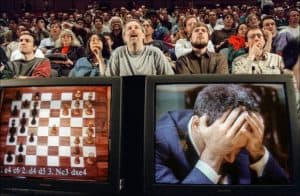
And so it goes, as soon as a computer clears the bar, somebody else just raises the bar. Today no one but a complete Luddite would doubt the power of chess computers, to the point that many people don’t find chess matches pitting human champions against computes very interesting anymore. But I’m getting ahead of the story…
Debate still rages today over what really happened in 1998. Despite the accusations of cheating on IBM’s part, voiced by a loud coterie of players (Kasparov among them), no solid evidence of such such cheating has ever found. IBM made the transcripts of Deep Blue’s analysis available for public inspection (I took a quick look at them myself, back in the day), which doesn’t prevent a few players even today from accusing IBM of faking the transcripts.
Of course, that’s the beauty of conspiracy theories: you can’t prove a conspiracy didn’t occur, because of the impossibility of “proving a negative”. What we do know is that after their machine’s victory, IBM wasn’t interested in a rematch. The corporation sold the Deep Blue hardware to an airline, which repurposed the machine to the complex task of juggling of thousands of airline reservations. The Deep Blue research into parallel processing, the idea of dividing complex computations among several processors, paid off in a big way from which we’re all reaping the benefits today. Even a modestly priced home computer utilizes parallel processing these days.
Kasparov was still game for more “human vs. computer” challenges. A few of these were televised, such as his match against a multi-processor version of the commercial program Fritz which was carried by ESPN in 2003. But each time the spectacle was repeated, fewer viewers tuned in. When coupled with the “balkanization” of the world chess championships, with multiple groups claiming to have the “official” chess champion (a la professional boxing), the “chess fever” which had gripped the chess public in the late 1990’s eventually cooled.
Stores went from carrying a dozen or more chess programs to just one or two; these days it’s not unusual to not find a single chess program on the software racks in a “big box” department store. Even the “specialty” market, which catered mainly to “serious” chess players started drying up, with many of the once major players (such as Chess Genius) falling by the wayside.
Related Post: How to analyse your chess games with a computer
21st Century Chess
The biggest change to chess has come from the Internet. Although Internet chess had existed in various forms for years, it really exploded as a phenomenon in the late 1990’s with the advent of Javascript and the increased popularity of the World Wide Web. By the turn of the century literally dozens of Internet sites offered online chess play (either “real time” or at correspondence time controls) and the number has only increased since.
Today the Internet offers limitless opportunities for chess play with thousands of players worldwide playing tens of thousands of chess games each day. Some chess web sites offer free basic chess instruction, while access to more advanced instruction might require a subscription fee.
Players can discuss chess on public message boards (though the “signal to noise ratio” [the ratio of worthwhile discussion to useless polemics such as trolling and flamewars] on such sites is open to debate). Meanwhile some chess software vendors seem to have learned that beginners and average players are looking for chess instruction which goes beyond the traditional “paper book” form.
Related Post: How to beat the computer at chess?
